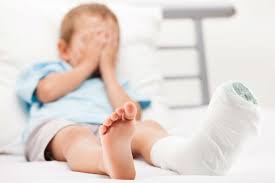Personal injury cases arise when a party’s negligence causes injury to another. It can be complicated for adults, and even more so when the victim is a child. A child’s personal injury case involves special rules for compensation and liability.
In a child’s personal injury case, there are key reasons why the treatment and processes are different.
Why is there a difference between a child and an adult’s personal injury case?
The foundation of the differences is the legal assumption that children’s judgment is not as well-formed as that of adults.
Because of this assumption, a child cannot file his or her own personal injury lawsuit. Though specific conditions may vary from state to state, someone under 18 generally cannot negotiate their own claim. A parent or guardian must act on the child’s right to compensation for pain and suffering, permanent injury or disability, and file for a lawsuit in the child’s name.
Note that a parent has the separate right to be compensated for medical bills paid relevant to the injury.
What are the other differences in a child’s personal injury case?
Aside from the need for a parent or guardian to file the lawsuit in behalf of the child, there are other differences that you should be aware of.
- Most personal injury claims are related to the legal theory of negligence.
Most cases are required to show that the defendant owed a duty to the child victim and breached this duty, resulting to injury. The duty can be specified depending on the circumstances of the case. It can be the act of providing ordinary care that any reasonable person would give in that set of circumstances. For instance, the care to drive safely and within limits when dealing with automotive accidents. There is also the care and skill of a health professional when dealing with medical malpractice cases.
- Damages beyond medical compensation can be awarded.
Damages that may be available for a child’s personal injury case include:
- Medical treatment for injuries
- Loss of future income if the accident will impair the child’s ability to earn as an adult
- Disfigurement
- Emotional and mental distress
- Pain and suffering
- Rules for trespassing are different.
An adult injuring himself by slipping and falling within a property he trespassed would probably not be able recover damages. This is because the act of trespassing or illegal entry has relieved the property owner of any liability.
In the case of children trespassing on another person’s property, however, compensation can still be awarded if the property owner knew of the potential danger on their property and the risk of children trespassing. The property owner, in some circumstances, should have put up fences or done other measures given the risk of children trespassing.
Are you a parent or guardian seeking to claim compensation in a child’s personal injury case? Be sure to contact a trusted personal injury attorney who can evaluate whether a claim can be pursued, and can help you ensure that you protect the rights of your child.
Written by Kellie Bertels, an attorney at Bandre, Hunt and Snider in Jefferson City, MO. Bandre, Hunt and Snider are the best attorneys Jefferson City MO have to offer.



